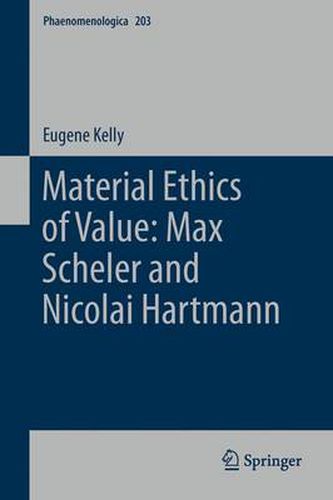Readings Newsletter
Become a Readings Member to make your shopping experience even easier.
Sign in or sign up for free!
You’re not far away from qualifying for FREE standard shipping within Australia
You’ve qualified for FREE standard shipping within Australia
The cart is loading…






This title is printed to order. This book may have been self-published. If so, we cannot guarantee the quality of the content. In the main most books will have gone through the editing process however some may not. We therefore suggest that you be aware of this before ordering this book. If in doubt check either the author or publisher’s details as we are unable to accept any returns unless they are faulty. Please contact us if you have any questions.
Max Scheler and Nicolai Hartmann developed ethics upon a phenomenological basis. This volume demonstrates that their contributions to a material ethics of value are complementary: by supplementing the work of one with that of the other, we obtain a comprehensive and defensible axiological and moral theory. By phenomenology, we refer to an intuitive procedure that attempts to describe thematically the insights into essences, or the meaning-elements of judgments, that underlie and make possible our conscious awareness of a world and the evaluative judgments we make of the objects and persons we encounter in the world.
$9.00 standard shipping within Australia
FREE standard shipping within Australia for orders over $100.00
Express & International shipping calculated at checkout
This title is printed to order. This book may have been self-published. If so, we cannot guarantee the quality of the content. In the main most books will have gone through the editing process however some may not. We therefore suggest that you be aware of this before ordering this book. If in doubt check either the author or publisher’s details as we are unable to accept any returns unless they are faulty. Please contact us if you have any questions.
Max Scheler and Nicolai Hartmann developed ethics upon a phenomenological basis. This volume demonstrates that their contributions to a material ethics of value are complementary: by supplementing the work of one with that of the other, we obtain a comprehensive and defensible axiological and moral theory. By phenomenology, we refer to an intuitive procedure that attempts to describe thematically the insights into essences, or the meaning-elements of judgments, that underlie and make possible our conscious awareness of a world and the evaluative judgments we make of the objects and persons we encounter in the world.